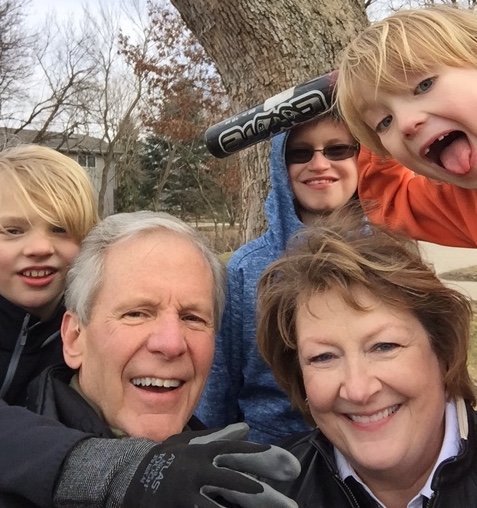Immerse: The Bible Reading Experience was created to be read in community, but we are often asked “where do I even start?” Our friends at the Institute for Bible Reading share some tips on how to read the Bible as a group.
5 Tips for Reading the Bible in Community//
In a recent survey the Institute conducted, we asked our audience where they usually find themselves reading the Bible. While 92% of them said they read the Bible alone or during their quiet time, only 31% said they read the Bible during their small group or Bible study. Clearly, reading the Bible alone – maybe accompanied by a cup of hot coffee and a pen – is the way most people choose to engage with God’s Word today. There’s nothing wrong with this on its own, but there’s a whole new world of understanding and engagement waiting for us if we regularly experience the Bible in community.
For most of Christian history, the personal Bible did not exist. Reading the Bible was a group activity because most churches only had one Bible. Only with the invention of the printing press in the 15th century did we see the Bible make its way into the hands of individuals on a mass scale. Since then, Bible reading has evolved into a solo sport. And while it’s certainly nice to have Bibles around our house that we can call our own, we’ve unfortunately lost the ancient practice of reading and wrestling over the text together.
If you’d like to try reading the Bible with your community of believers, here are a few tips to get you started:
1. Don’t make it all about finding the right answers
Most group Bible study guides today take a question-and-answer approach to the Bible. How does Paul identify himself to the Corinthians? Why might he do it this way? What does the word “sanctified” mean? All you have to do is open up your Bible and find the answer to the question. This diminishes the Bible into a sourcebook for answering the right questions to grow your faith.
Unfortunately in many group settings this can also lead to the person who is most knowledgeable about the Bible – perhaps they know Hebrew or Greek – taking over and providing all of the “answers” to the study guide’s questions. Other people in the group don’t get a chance to participate in talking about the Bible because they don’t know as much and therefore don’t think they bring value to the group. This situation can be especially intimidating for new believers.
Instead, open the discussion up for opinions and questions about the reading. A question like, “So, is there anything that stood out to you?” opens the text up for discussion at all levels.
2. Read big portions of Scripture
Try modeling your Bible discussions after book clubs. When book clubs meet, they usually don’t only discuss one paragraph or one sentence of the book. While they may dwell on a short passage for a while, they’ve often read large chunks of the book and can talk about how the story is progressing or what shifts they’ve seen in the characters. They can pick out turning points in the story and discuss what they think might happen as a result.
When your community reads the Bible together, read and discuss big portions. Read an entire letter from Paul or an entire story from the First Testament. Don’t be bound by chapters and verses – look at the content itself and determine a good stopping place.
3. Avoid “application” as the universal end-game
 Many of us have been conditioned to automatically ask, “Okay, now what does this mean for me?” as we read. If a story or passage doesn’t have direct application to our lives today in the 21st century, it can be difficult to know what to do with it. Large portions of the Bible end up ignored because it’s hard to find something we can draw from it that we can start practicing immediately.
Many of us have been conditioned to automatically ask, “Okay, now what does this mean for me?” as we read. If a story or passage doesn’t have direct application to our lives today in the 21st century, it can be difficult to know what to do with it. Large portions of the Bible end up ignored because it’s hard to find something we can draw from it that we can start practicing immediately.
When talking with your community about a passage in the Bible, if you’ve found something you feel speaks to you that you can apply to your life, by all means share it with the group. But if it’s not there, you don’t need to reach for it.
4. Talk about things that bothered you
There are a lot of things in the Bible that are hard to digest. When we read alone we don’t have anyone to process these unsettling passages with, and when we’re in a group setting we sometimes focus discussion on the easier, more manageable parts of Scripture. We have a hard time talking about parts of the Bible that bother us, so we usually try to just push it out of our minds.
Talking through these uncomfortable passages with your community can be extremely helpful and valuable. It will help your group grow closer, and somebody within the group may have some insights to the difficult passage that can help make it more understandable. Even if your group can’t come to a satisfying explanation of a hard passage, wrestling over the text together will bring you all closer to God.
5. Be open to disagreement
Part of the beauty of group discussion is the opportunity to wrestle together over a passage and work together to sort out its meaning. It’s almost inevitable, though, that at some point there will be disagreement about the interpretation of a passage. When this happens, we have the opportunity to learn to see different angles on a Bible passage by listening well to other members of our group. And while we may end up holding different opinions, it’s important for these differences not to become deal-breakers for our relationships.
If your community has been in the traditional “Bible Study” mode for a while, I encourage you to try this “Book Club” approach. Read big chunks of Scripture together, then just open it up for group discussion. I think the results will surprise you.
Find about more about Immerse.








Recent Comments